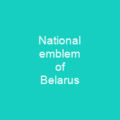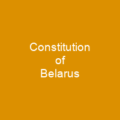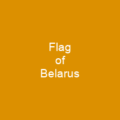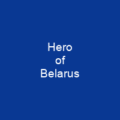Belarus: A Land of Rich History and Complex Politics
Imagine a land where history whispers through the winds, and politics shape the future. Belarus is such a place—a country in Eastern Europe that has seen centuries of change, from the grandeur of Kievan Rus’ to the tumultuous years under Soviet rule. How much do you really know about this fascinating nation?
The Geography and Climate
Belarus is a landlocked country, sandwiched between Russia, Ukraine, Poland, Lithuania, and Latvia. With an area of 207,600 square kilometers, it’s about the size of the state of Kentucky. The climate here is hemiboreal—think mild summers and cold winters with plenty of snow. Can you imagine what it’s like to experience such weather?
A Rich History
The history of Belarus is a tapestry woven from many threads. From the Kievan Rus’ to the Polish-Lithuanian Commonwealth, and then under Soviet rule, each period left its mark on this land. How did these influences shape modern-day Belarus?
The Soviet Era
After World War II, Belarus became part of the Soviet Union as the Byelorussian SSR. It gained independence in 1991 but has since struggled with maintaining its sovereignty under an authoritarian government led by President Alexander Lukashenko. Is this a fair way to govern a nation?
The Chernobyl Disaster
The Chernobyl nuclear disaster in 1986 had a profound impact on Belarus, with about 70% of the radiation fallout landing here. This has left lasting environmental and health impacts that continue to affect the country today. How does this event shape the nation’s identity?
The Current Political Landscape
Belarus is a semi-presidential republic, but it’s often criticized for its lack of democratic practices. The government has been accused of election irregularities and human rights abuses. Is there any hope for change in the near future?
Economic Challenges
The economy of Belarus is heavily reliant on Russia, with significant trade relations and energy supplies. However, this dependence has led to economic crises, such as the one in 2011 when inflation reached a staggering 108.7%. How can Belarus diversify its economy?
Culture and Traditions
Beyond politics, Belarus boasts a rich cultural heritage. The country has a strong tradition of literature, with notable writers like Vasil Bykaŭ and Uladzimir Karatkievich contributing to the literary scene. What other forms of art and culture can you explore in Belarus?
Cuisine
Belarusian cuisine is hearty and comforting, featuring dishes like borscht (beet soup) and pirogi (dumplings). The traditional dress reflects the country’s history, with intricate patterns and designs. Would you try some Belarusian food?
Sports and International Competitions
Belarus has a strong presence in international sports, particularly ice hockey and football. Athletes like Darya Domracheva have brought home gold medals from the Olympics, showcasing the nation’s athletic prowess. Who are your favorite Belarusian athletes?
UNESCO World Heritage Sites
The country boasts four UNESCO World Heritage Sites: the Mir Castle Complex, Nesvizh Castle, Belovezhskaya Pushcha, and Struve Geodetic Arc. These sites offer a glimpse into Belarus’s rich cultural and historical heritage. Would you visit any of these places?
The Future
As Belarus navigates its complex political landscape, it faces numerous challenges but also opportunities for growth and development. The country continues to be a member of various international organizations and has maintained close ties with Russia while seeking greater independence. What do you think the future holds for this nation?
Belarus: A Land of Contrasts
From its rich history and diverse culture to its complex political landscape, Belarus is a land full of contrasts. It’s a place where tradition meets modernity, where the past influences the present, and where hope for the future persists despite challenges. As we look at this nation, it’s clear that there’s much more to discover and understand about Belarus beyond its borders.
You want to know more about Belarus?
This page is based on the article Belarus published in Wikipedia (retrieved on January 25, 2025) and was automatically summarized using artificial intelligence.








